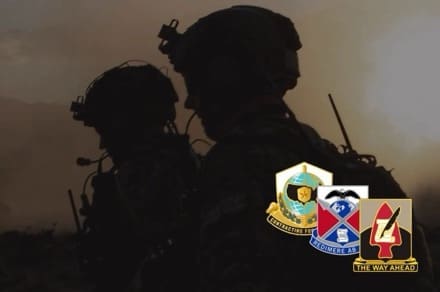
JOINT BASE SAN ANTONIO-FORT SAM HOUSTON, Texas (May 9, 2024) — A comprehensive overhaul of the field ordering officer program used in procuring micro-purchases of supplies and limited services recently transformed an outdated process heavily reliant on manual inputs into a more modern and integrated web-based framework offering greater efficiencies.
The Army’s field ordering officer, or FOO, program serves as an influential tool and only readily available supply source for many items by units operating in an austere environment typically hampered by limited or lengthy supply lines.
Sgt. 1st Class Charlee Thousand, the 905th Contracting Battalion program manager for the field ordering officers, set out with a team of knowledge systems professionals in March 2023 to conduct a thorough analysis of existing processes and identify inefficiencies and areas for improvement leading to the recent launch of the portal offering a one-stop shop for special operations forces and support personnel.
“The need for the field ordering officer customer portal was to help reduce the hundreds of emails, calls and (Microsoft) Teams messages received from our supported units with questions about training, the appointment process, clearing process, and termination process,” Thousand said.
She lauded the critical role played by knowledge systems specialists from the U.S. Army Special Operations Command knowledge management support office including Shannon Meeks, Ryan Strauss and Michael Gains. “They have been great at taking my ideas and turning them into products to assist our customers.”
Contracting officers designate field ordering officers, with whom they must work closely, in accordance with guidelines outlined in the Special Operations Federal Acquisition Regulation Supplement. This delegation grants them the power to commit government funds for micro-purchases to meet one-time, immediate needs, while also streamlining the administrative process for small procurements and alleviating the burden on a contracting office.
The Army relies on contracting officers and appointed FOOs who play a critical role in procuring equipment, supplies and services in support of U.S. operations around the globe and serve as a force multiplier in making on-the-spot, over-the-counter purchases under the micro-purchase threshold that quickly and directly impact mission requirements.
Thousand first approached Lt. Col. Adam Salazar, commander of the 905th CBN, about her desire to modernize the FOO program interface.

“In short, she’s done this terrifically well. She’s saved hundreds of Soldier hours and streamlined the program interface, working one on one with the USASOC tech team to create a seamless website on the USASOC SharePoint portal,” Salazar said. “Everything a FOO needs is right there on the opening pane, from regs, templates, status reports and points of contact. It even includes information for pay agents, which is above and beyond as pay agent support falls outside of procurement and under the supported unit’s comptroller.”
The 905th CBN FOO program supports the Army Special Operations community and other U.S. special operations communities, and within a fiscal year the battalion supports hundreds of FOOs dispersed across dozens of locations around the world. In fiscal 2023, the battalion appointed more than 300 FOOs. The need for in-country micro-purchases as well as obligation and disbursement of funds on behalf of the government during deployed operations often involves a significant amount of administration and scrutiny. This requires FOOs to maintain adequate records and documentation in compliance with U.S. law, federal regulations and local command policies – all better facilitated by the new interface.
“It allows the customer to track and see in real time the status of their document submission. They can see any comments that the contracting officer makes, and it allows them to go in on the same document and make a required correction,” Thousand explained. “Whereas before all of that was done with back-and-forth email traffic. Prior to implementing this interface, my team calculated that it took almost 30 days from first email contact to FOO appointment with over 25 emails in between. Now it has been reduced to around five to seven days and one or two emails on the portal.”

Thousand said her team has received nothing but positive and helpful feedback on making the FOO portal better.
Master Sgt. Kayla Mason, the comptroller senior enlisted adviser for the 1st Special Forces Command (Airborne), agrees the new interface offers seamless collaboration and streamlines operations by reducing workflows.
“The new interface provides real-time financial data, which is critical to our command’s ability to reallocate funding with confidence and prevent lost buying power in the current fiscal year,” Mason said.
Thousand concludes that bringing greater efficiencies to the FOO program not only optimizes speed and accuracy by reducing manual labor but also delivers increased organizational sourcing and capability.
“Automating repetitive tasks reduces manual effort and minimizes the risk of human error. By streamlining processes, teams can allocate their time and energy to more strategic activities, ultimately improving overall efficiency,” she said. “Manual processes often introduce delays. By automating document workflows, businesses can achieve quicker turnaround times, leading to improved customer satisfaction.”
About the MICC
Headquartered at Joint Base San Antonio-Fort Sam Houston, Texas, the Mission and Installation Contracting Command consists of about 1,500 military and civilian members who are responsible for contracting goods and services in support of Soldiers as well as readying trained contracting units for the operating force and contingency environment when called upon. As part of its mission, MICC contracts are vital in feeding more than 200,000 Soldiers every day, providing many daily base operations support services at installations, facilitate training in the preparation of more than 100,000 conventional force members annually, training more than 500,000 students each year, and maintaining more than 14.4 million acres of land and 170,000 structures.
By Daniel P. Elkins, Mission and Installation Contracting Command Public Affairs Office

